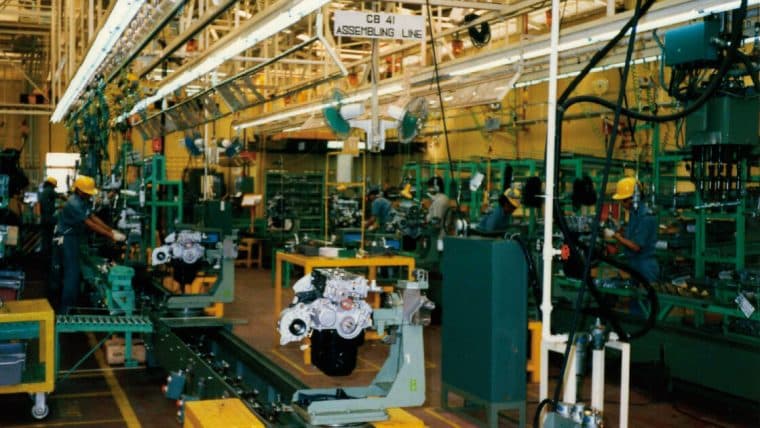Toyota has announced a large recall of 1 million Toyota and Lexus cars in the United States because of a possible issue with the airbag systems. The recall affects models from 2020 to 2022, including the Toyota Avalon, Camry, Corolla, Highlander, RAV4, and Sienna. Lexus models impacted include the ES250, ES350, and CC.
According to Toyota, the issue involves Occupant Classification System (OCS) sensors in the front passenger seats that may have been improperly manufactured. This could cause a short circuit that does not allow the airbag system to properly determine the occupant’s weight. As a result, airbags may fail to deploy properly in certain crashes, increasing injury risks.
Toyota and Lexus dealers will inspect the sensors and replace them if necessary at no cost to vehicle owners. Notifications to owners will begin by mid-February 2024 once replacement parts are available.
This massive recall comes on the heels of two other similar events this year for Toyota over unrelated issues. In November, Toyota recalled 1.9 million RAV4 models in the U.S. due to a problem with battery packs shifting and potentially causing fires. Meanwhile, in October, 751,000 Toyota Highlander SUVs were recalled to address issues with front bumper covers detaching after minor impacts.
These successive recalls over the past couple of months appear to be pointing to quality control issues that Toyota will need to address swiftly. As an industry leader, Toyota has built its reputation largely on safety and reliability. However, these recent actions put its reputation at risk if problems are found to be systemic rather than one-off situations.
Expanding Safety Scandal Rocks Toyota’s Daihatsu Subsidiary
While Toyota grapples with recall issues, an expanding safety compliance scandal at its Daihatsu subsidiary has led to the dramatic decision to halt global shipments of all Daihatsu models.
The move comes after an independent panel investigation found widespread problems relating to vehicle safety testing. Thus far, issues have been uncovered involving 64 models, including 22 Toyota-branded models manufactured by Daihatsu.
Allegations first surfaced in April this year that Daihatsu engineers had rigged safety tests for about 88,000 vehicles sold primarily in Southeast Asia markets. However, the latest audit discovered a far greater number of compliance problems dating back over 30 years.
Also read: Toyota Camry Goes Hybrid-Exclusive in the US in 2025
Most concerning, Daihatsu admitted that side-collision testing data had been manipulated for dozens of models that are currently in production. Safety test procedures were skipped entirely for some vehicles according to the panel’s report. They cited intense internal pressures and poor oversight as contributing factors.
While not aware yet of any related accidents, Toyota has halted Daihatsu shipments indefinitely until full re-testing can be performed. The company pledged a top-to-bottom review of Daihatsu operations and culture to prevent future recurrence of such issues.
This comes only months after Toyota’s Hino Motors trucking division admitted to falsifying emissions testing data on its engines. The back-to-back scandals present a black eye for Toyota’s reputation and ability to properly audit its subsidiaries.
It also raises uncertainty around Daihatsu’s production targets in 2023 for key markets like Japan, Malaysia, Mexico, Thailand, and Uruguay. As Toyota’s main manufacturer of compact cars, the suspension of Daihatsu’s annual vehicle output – which exceeds 1.5 million units – could affect its supply chain and profits substantially if prolonged.
Within Japan’s kei car segment, Daihatsu holds around a 30% market share currently. Hence, until these issues are resolved, the safety testing scandal may provide an opportunity for competitors like Suzuki to steal valuable market share from its rival.
Problematic Work Culture and Defects Found at Toyota Plants

Safety problems at Toyota are not isolated to recalls or procedural testing violations as discovered at Daihatsu. Signs point to deeper issues that may be the result of a corporate culture that breeds defects.
According to the independent panel investigating Daihatsu, intense internal pressures and poor working conditions have contributed greatly towards compliance infractions over the years. Investigators found that engineers often skipped safety test protocols entirely in order to meet overly demanding deadlines for bringing vehicle designs to market faster.
This resulted in not only the manipulation of testing data but also the use of unauthorized parts in vehicles that are already being sold to the public. Such unsanctioned parts substitutions introduced quality control issues that could negatively impact vehicle safety and performance.
Also read: Toyota Leaked Data of Over 2.1 Million Customers
Additionally, routine government inspections have uncovered defects missed by internal quality audits of Toyota’s plants. Prompted by the Daihatsu scandal, Japan’s Transport Ministry performed its own on-site investigation of the company’s main Osaka plant this week.
While the findings have not yet been disclosed, any major issues found that slipped past Toyota’s own inspections would further indicate lapses in quality control standards. It may also hint at a high-pressure environment similar to Daihatsu where speed is prioritized over rigor.
Taken together, the recalls, cheating scandals, unauthorized parts swaps, and deficiency discoveries showcase systemic issues at Toyota. Its world-class reputation for safety and manufacturing excellence has cracks that require urgent repair through overhauls of internal procedures and cultural mindsets.